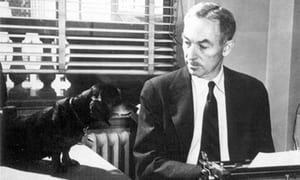
Any type of writing, whether it be for an English class argument essay or an email, will benefit from positive statements. This doesn’t mean to look on the sunny side, but to eliminate negative constructions and use definitive statements in your writing.

William Strunk, Jr. and E. B. White, in their still-popular, The Elements of Style, urge writers to,
“Make definite assertions. Avoid tame, colorless, hesitating, noncommittal language. Use the word not as a means of denial or in antithesis, never as a means of evasion.”
Strunk and White know what they are talking about, but most of us don’t, so let’s break that down.
A definitive statement is a direct, succinct, clear declaration. Look at the two examples below:
a. He was not very often on time. b. He usually came late.
It’s obvious that the first example is not only unclear, but wordy and hesitant. Most of the time, a positive, definite statement is shorter, and in academic writing, this is a good thing. Writers should always strive to avoid wordy sentence constructions, which can lead to confusion.
Let’s look at another example from Strunk and White:
a. He did not think that studying Latin was much use.
b. He thought the study of Latin useless.
In both first (a.) examples above, the writer has used a negative (not), which weakens the message (and the writer’s authority). The sentence communicates what is not, as opposed to what is.
Let’s look at another example from a college paper:
The argument in favor of stricter environmental waste laws might not seem to possibly be enforceable.
This sentence has more than one problem, so let’s take a closer look.
The sentence, like the examples above, uses a negative – “might not seem.” Like the previous examples, changing it to a positive will strengthen the sentence immediately:
The argument in favor of stricter environmental waste laws is not enforceable.
The previous version was not only negative, but also indefinite. What does the writer mean? We’re not sure!
Academic writing should be strong and to the point, avoiding words like may, might, seem, possibly, probably. Indefinite constructions communicate the writer hasn’t thought out her opinions, or can’t decide on which side of the fence to sit. In the revised version, we have eliminated the wishy-washy construction, “might not seem to possibly. . .”.
The argument in favor of stricter environmental waste laws is not enforceable.
This statement is strong, bold, forceful, and the reader knows she can trust the writer.
Positive, definitive statements communicate that the writer knows the facts, has strong opinions, and has done their homework. Practice revising your sentences in the positive, definitive form for stronger, bolder writing.
